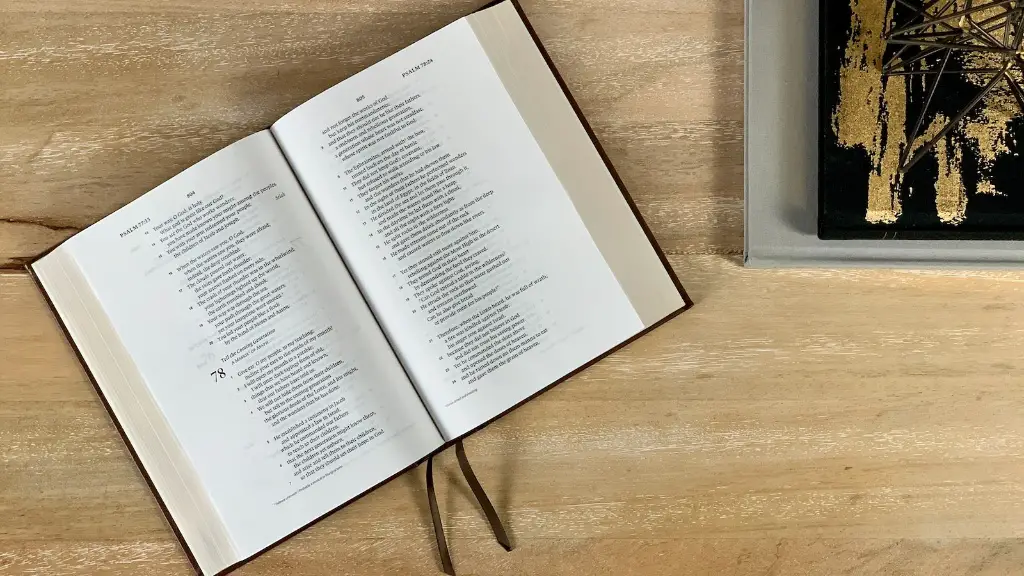American poet, Walt Whitman, is one of the most prominent literary figures of the 19th century and is widely appreciated even today. He was an influential and inspiring figure in creating the American identity, and his works were reflective of his vision of American democracy and what it meant to him. But why did Walt Whitman write these poems?
It is often said that Whitman started writing poetry as a means of self-expression. He was an observer and commentator of the world around him, and he was reflective of the societal changes that he encountered during his lifetime. He wrote about his personal experiences, which were often both political and spiritual in nature. His sentiments seemed to express a sense of empowerment in the face of adversity, which appealed to many readers.
There is also a political aspect to Whitman’s works. During his lifetime, freedom and democracy were at the forefront of the American mind, and there was a desire to further that ideal. Whitman wrote his works as a way of expressing his vision of a civil society and how it could be achieved through understanding and respect.
Another reason why Walt Whitman wrote poems was due to his interest in language. His works are written in free verse, which allows for his ideas to take center stage and for the words to be approached more freely. This was a revolutionary movement at the time and helped to further cement Whitman’s place as a lyricist and innovator.
In addition, Whitman’s writings were inspired by his desire to speak to a larger audience. His works were personal in nature and could relate to many people. He wanted to capture the universal human experience and his works were certainly a success at doing so.
To conclude, it is clear that Walt Whitman wrote his poems to express himself and his ideals, while also speaking to a wider audience. His works were revolutionary and greatly impacted the literary landscape of the 19th century.
His Style
Walt Whitman’s style of writing is arguably one of the most recognisable of all poets. He wrote in free verse, allowing for his words to be interpreted in various ways and finding multiple ways to express his thoughts. He sought to speak in the language of the people and had an ability to capture the human experience in a way that was enjoyable and accessible.
Featuring a range of topics, his poems embody themes such as freedom, love, and nature. He showcased his progressive ideals by tackling subjects such as democracy, which was quite controversial for its time. He was often bold with his words and his works featured inconsistencies in grammar and punctuation, which allowed for him to form a style of his own.
As such, Whitman’s writing style was revolutionary and it established his place in history. His works helped to further the American identity, while providing insightful commentary of the current societal climate. His writing captures the importance of change and striving for excellence.
His Impact
The impact of Walt Whitman’s works is far reaching. His poetry has had a huge influence on American literature and many of his works have gone on to become classics. His works provided a unique contrast to the traditional forms of poetry, which enabled for more meaningful expressions to be conveyed.
Today, Whitman’s works are still relevant and have a lasting impact on the literary world. His works are celebrated for the beauty of the language and the powerful messages that they convey. They continue to be studied and analyzed, and his words continue to move generations of readers.
Furthermore, Whitman has inspired countless artists across all fields, particularly musicians. Several musicians have used his works as a source of inspiration and his words have been interpreted in various ways. His works have inspired people to think outside of the box and challenge the norm.
Ultimately, it is clear that the influence of Walt Whitman is still felt today and it is clear that his works had a lasting impact on the world of literature. His works showcased a unique perspective and were ahead of their time in terms of expression and societal commentary.
His Legacy
Walt Whitman made a huge contribution towards the American identity and left behind a legacy of powerful works. His works have captivated generations of readers and his commitment to his craft is still seen today. He helped to shape the literary landscape of the 19th century and introduced a unique style of writing, which has been adopted by many writers.
Today, Whitman’s works are still widely appreciated. He has been the subject of many books, films and songs, and more writers are attempting to emulate his style. He is also studied actively in schools and universities around the world, which is testament to his lasting influence.
His works will likely continue to be enjoyed and studied for a long time, and his influence will remain present in the world of literature. His works speak to a wide range of topics, and in doing so provide a unique insight into the mind of one of the most influential poets of his time.
Evaluating His Works
Evaluating Walt Whitman’s works is an important task in understanding his legacy. His works are often praised for their beauty, complexity and scope. They provide a unique perspective on the American experience and offer insight into the realities of life. His works speak to both the physical and spiritual aspects of life, while also showcasing his commitment to a civil society.
His works showcase his commitment to expression, which was revolutionary at the time. Whitman also showed an outstanding command of language and was able to use words in a way that others were not able to. His works move readers and provide a unique insight into the American experience.
As such, it is clear that his works can offer a unique perspective on understanding the American identity. They help us to understand Whitman’s vision of a better society, whilst also showcasing his commitment to expression and understanding. His works are reflections of his beliefs and offer insight into the values and ideals of the 19th century.
His Reception
At the time of writing, Walt Whitman’s reception was quite mixed. Some praised his works as a revolutionary way of looking at literature, whilst others saw them as quite radical and inappropriate. Despite this, his works were widely appreciated and he quickly established himself as a major figure in the literary world.
Today, Whitman’s works are widely celebrated and are seen as masterpieces. His works are still studied and analyzed in schools and universities, and he is often credited with revolutionizing American literature. His works are seen as reflections of an American identity, and many authors look to him as an inspiration.
Ultimately, it is clear that Walt Whitman is still relevant today. His works remain popular and continue to captivate readers. His works are powerful expressions of emotion and thought, and they offer insight into the human experience. His works are still celebrated and will likely remain so for a long time.
Conclusion
Walt Whitman is arguably one of the most influential poets of his time. His works provided a unique and revolutionary perspective on writing, whilst showcasing his commitment to expression and understanding. His works have gone on to become classics and continue to captivate and inspire readers all over the world.
His works continue to be studied, analysed and enjoyed. His words hold a powerful meaning and convey an important message. His works demonstrate the importance of understanding and respect, and they inspire people to strive for excellence in their work and lives.





